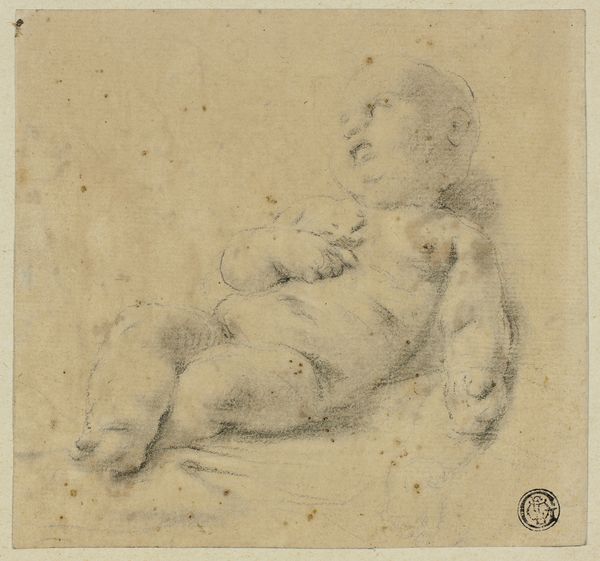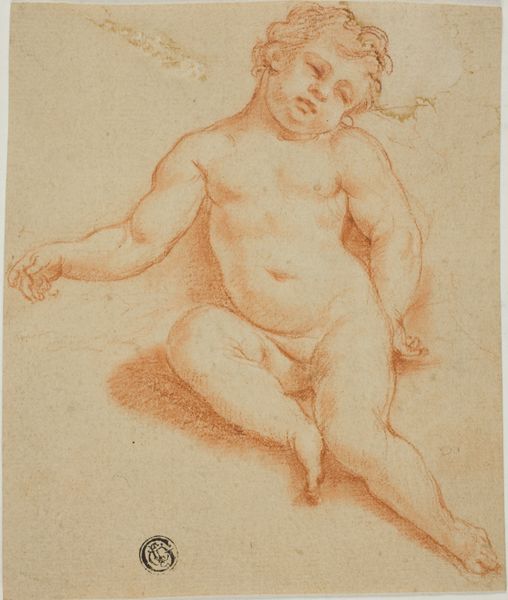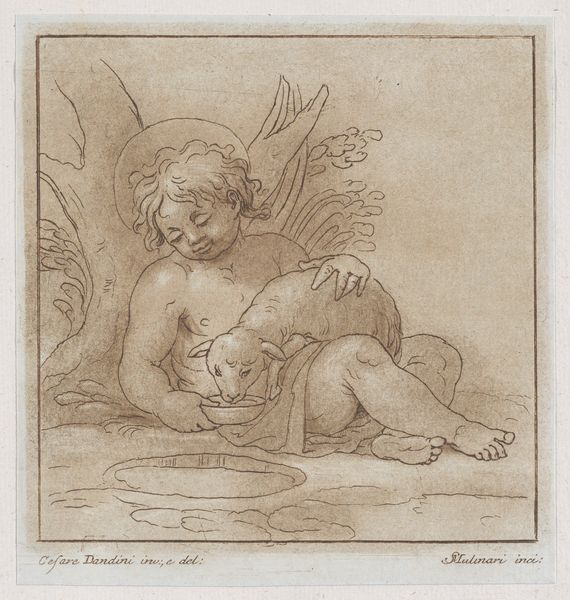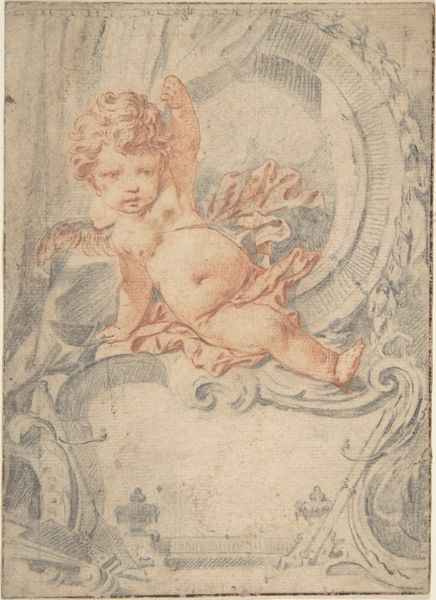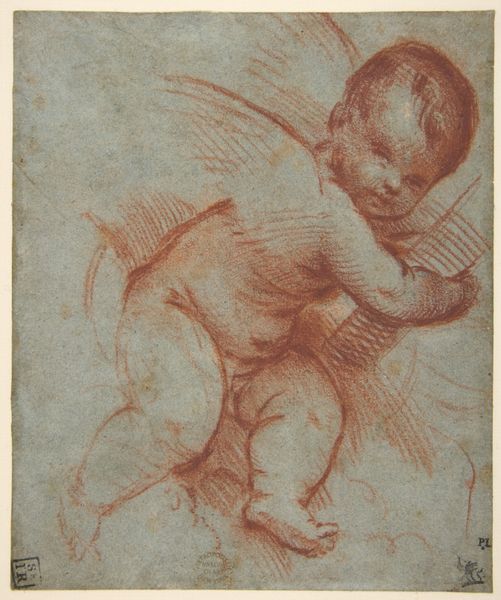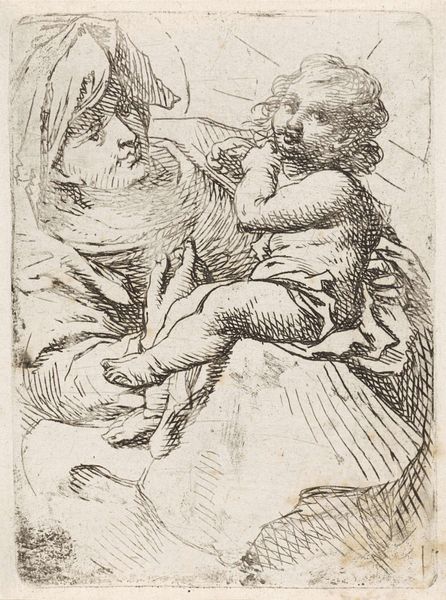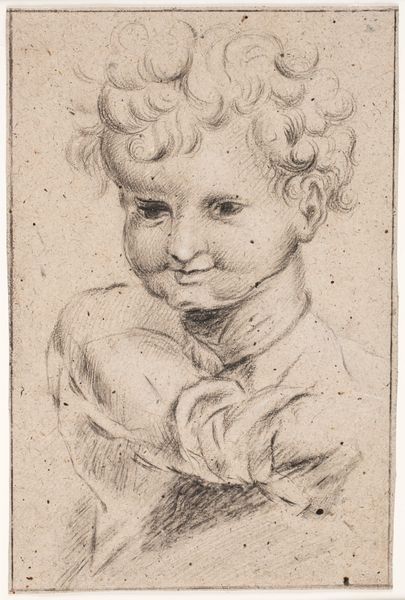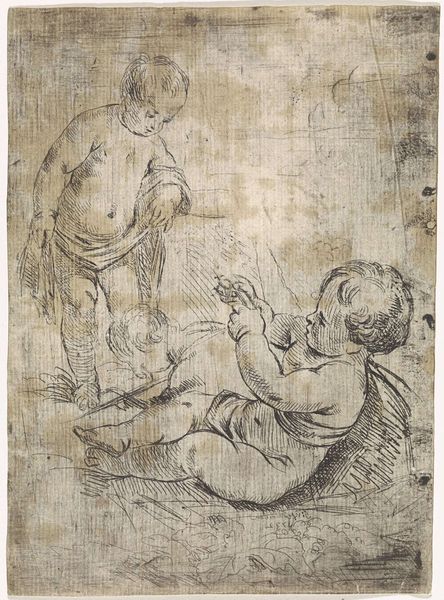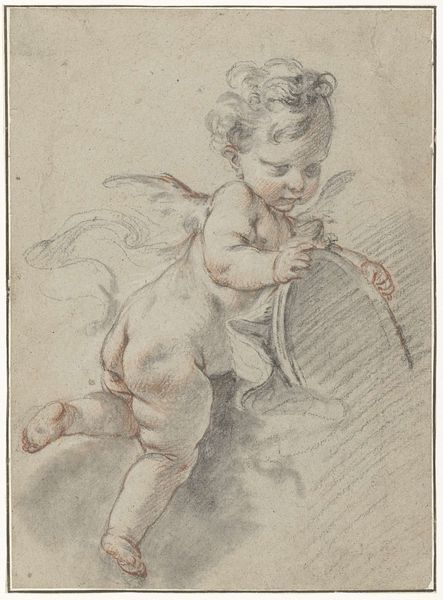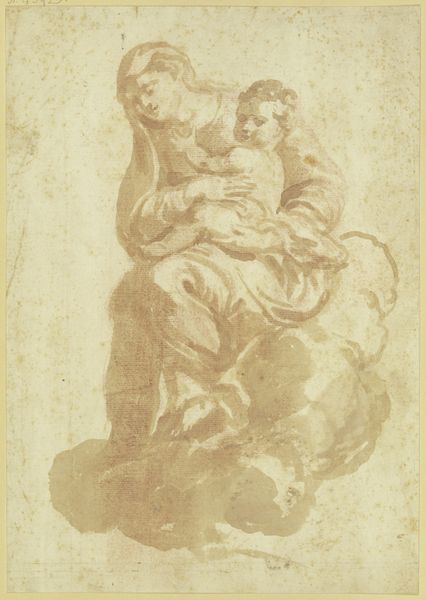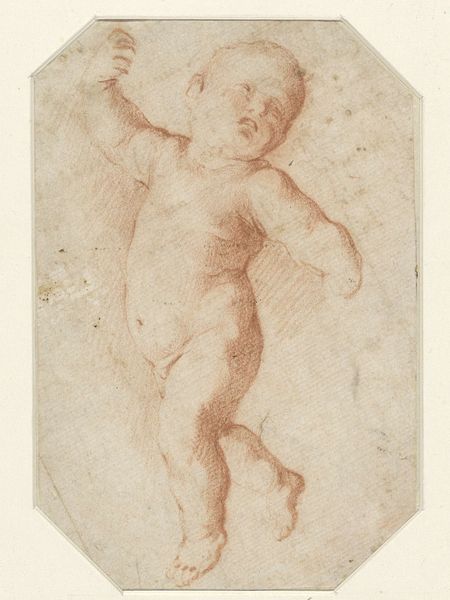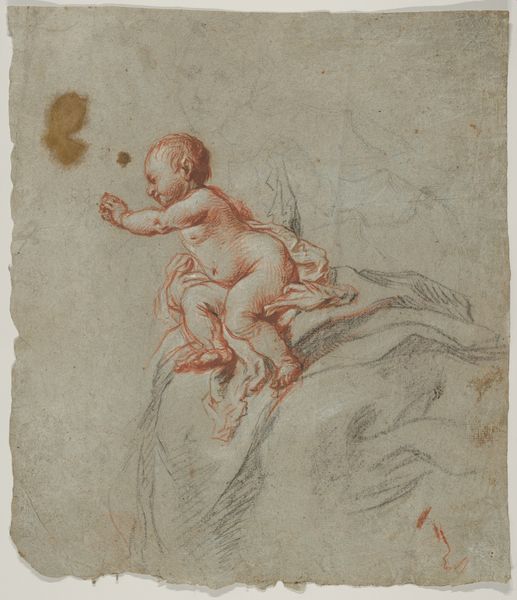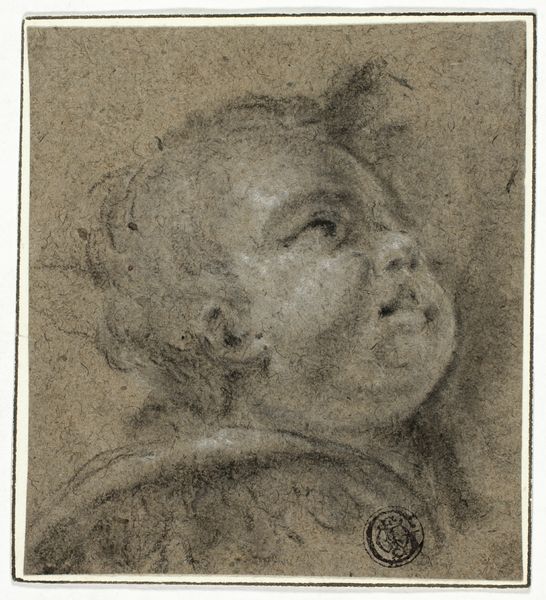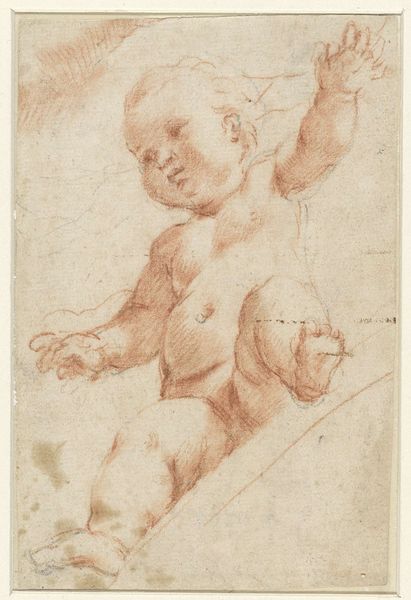
#
pencil drawn
#
toned paper
#
light pencil work
#
pencil sketch
#
pencil drawing
#
coloured pencil
#
portrait drawing
#
watercolour illustration
#
pencil art
#
watercolor
Dimensions: height 170 mm, width 162 mm
Copyright: Rijks Museum: Open Domain
Curator: This is Federico Barocci's study, "Christ Child with the Hand of Mary," likely created between 1545 and 1577. It's currently held here at the Rijksmuseum. Editor: My immediate impression is tenderness. The soft lines of the pencil on toned paper give the infant Christ a delicate, almost vulnerable quality. It’s as if we're witnessing a private, intimate moment. Curator: Absolutely. Barocci was renowned for his ability to capture emotion, and that's particularly evident in his preparatory drawings like this one. The medium itself--pencil, chalk--lends to the expressiveness of this work. We see how he explored the interplay of light and shadow, a technique perfected by the end of the sixteenth century. Editor: And note the careful attention to detail, even in a sketch. The texture of the baby's hair, the folds in Mary's robe. There's a real sense of the human, familial relationship here. That dynamic would play into societal expectations of motherhood at the time, too. Curator: Precisely. We must remember that, particularly in religious art, images of motherhood also speak to socio-political dimensions. The very deliberate placement of Mary's hand is critical for interpretation. Is it a gesture of blessing, support, protection? The artist invites the viewer to consider that close bond. Editor: And I would say that it brings to mind conversations around maternal labor, and its perceived rewards: religious art gives women agency to access a very real, lived-in humanity that we might now relate to broader discussions on unpaid care. Curator: An astute point, how Barocci's preparatory drawing grants access to human feeling beyond the artwork’s overt religious theme. It reminds us that religious artwork operates as both an historical and contemporary image. Editor: In the end, Barocci shows us the making of art, revealing how it invites us to interrogate historical image-making and modern identities. Curator: A profound perspective! Indeed, his artistic explorations underscore not only technical expertise but also resonate across historical contexts to reveal connections with today’s culture.
Comments
No comments
Be the first to comment and join the conversation on the ultimate creative platform.
